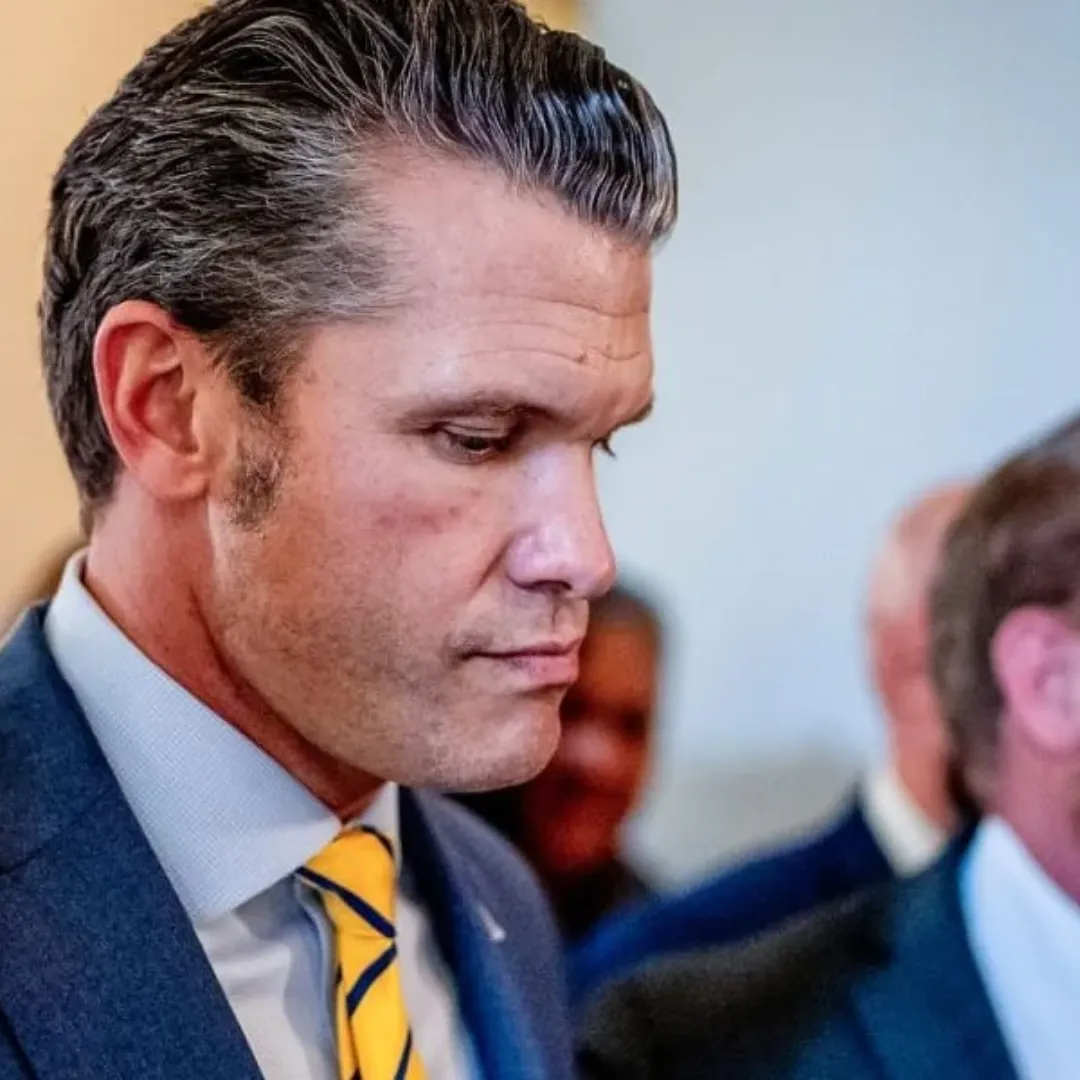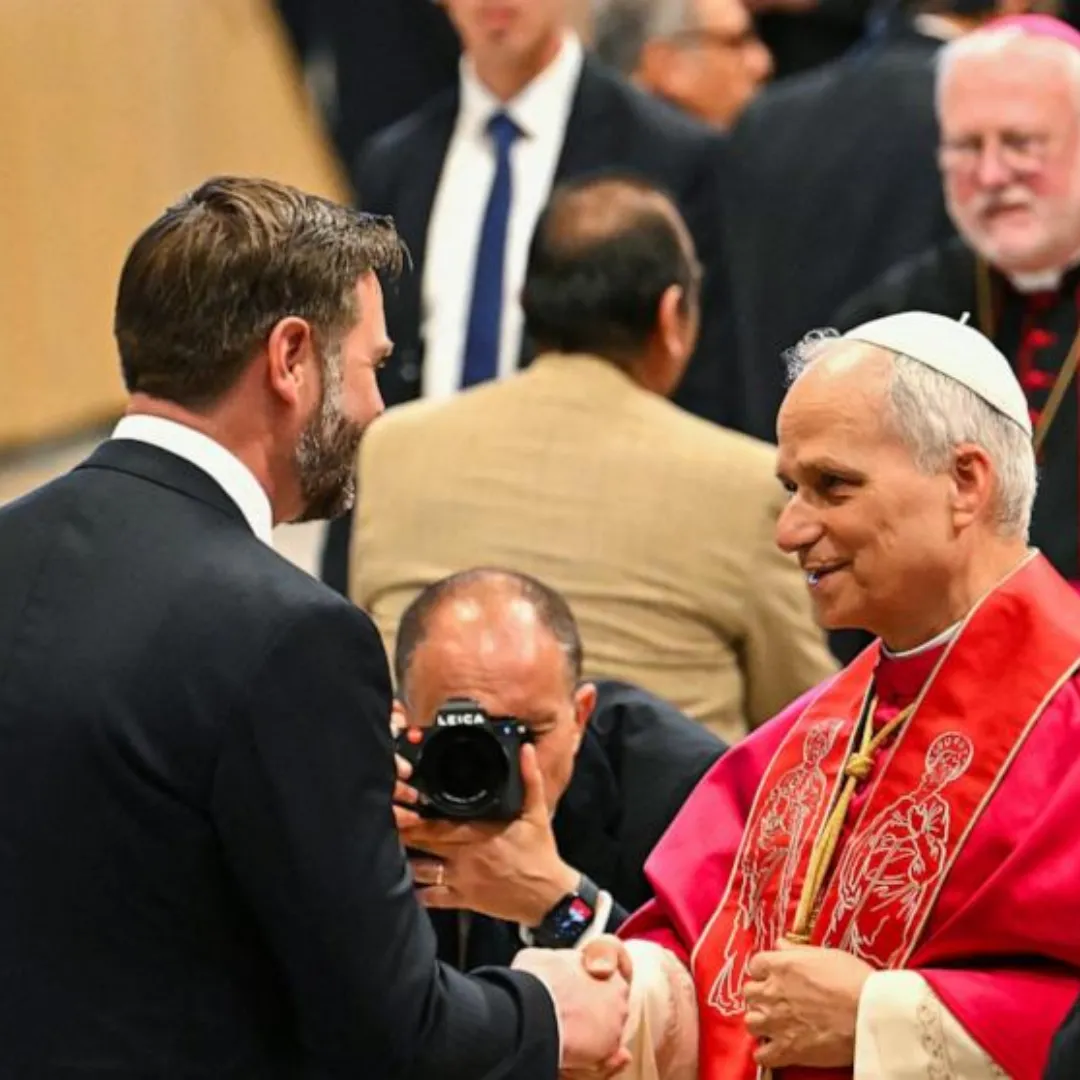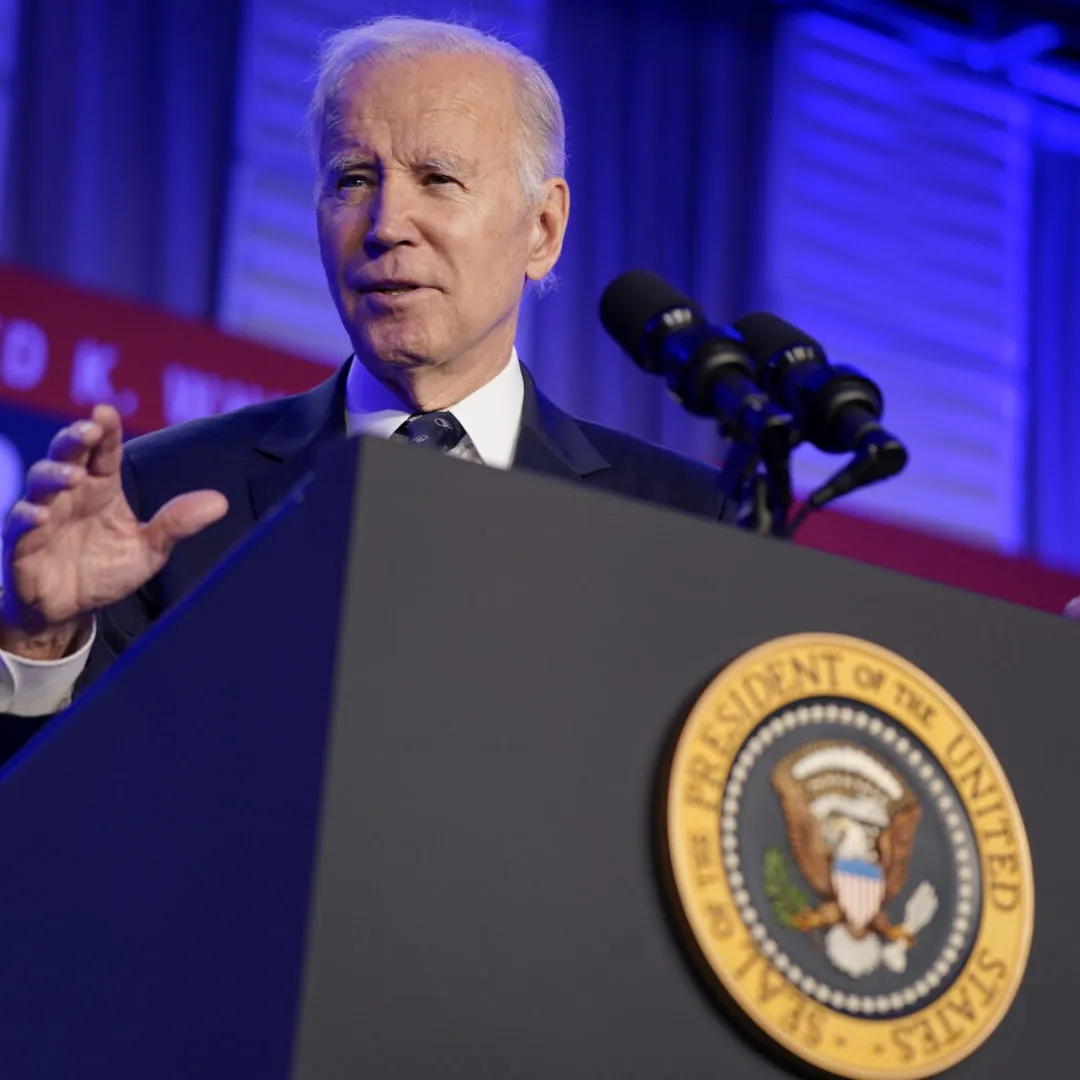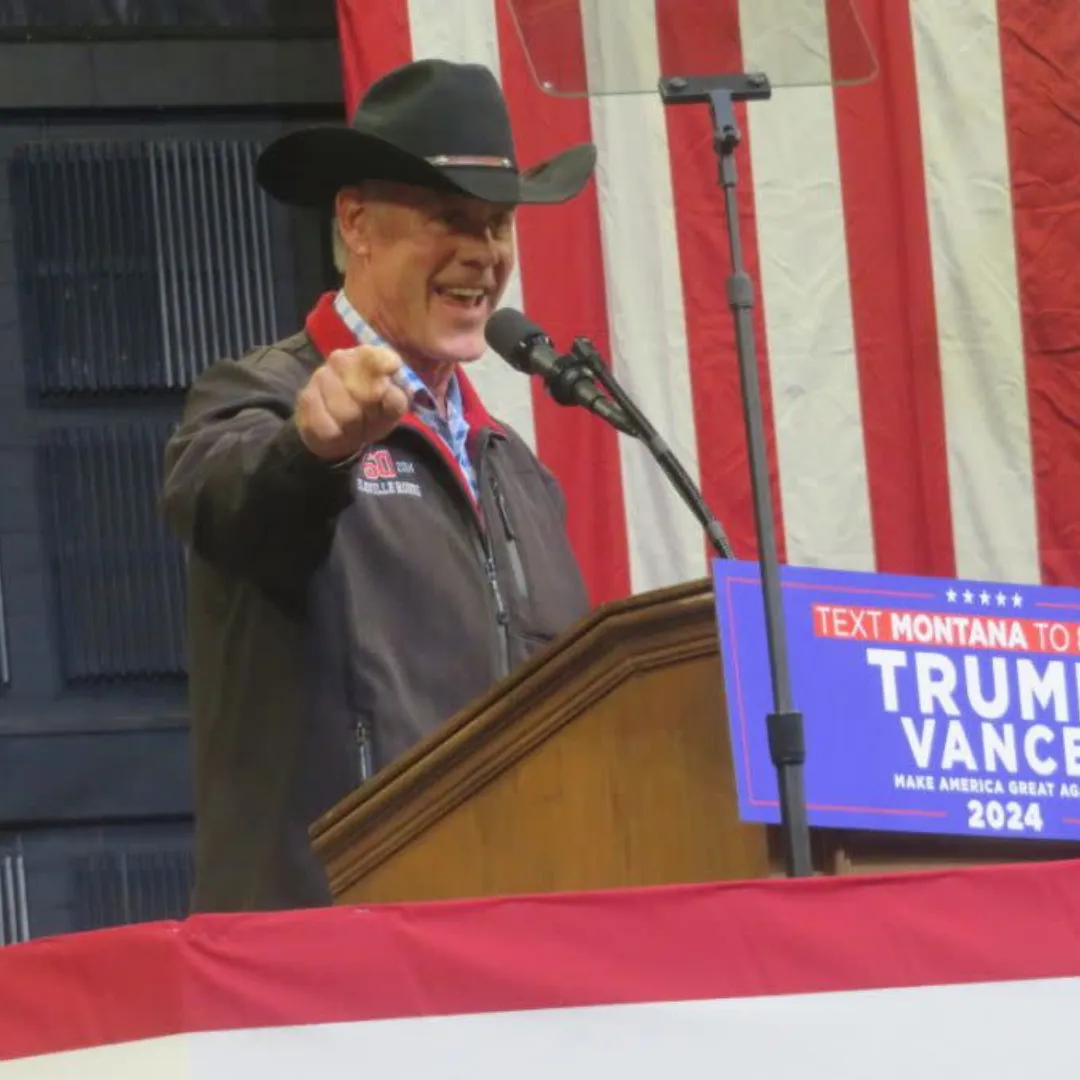
President Donald Trump traveled to Michigan on Tuesday for a rally marking his first 100 days in office, delivering a fiery and unscripted speech filled with campaign-style energy, familiar grievances, and a mix of policy highlights and political attacks.
The president touched on a range of topics during the appearance, including criticism of his predecessor Joe Biden, the Federal Reserve’s handling of interest rates, and federal judges who have ruled against his executive actions.
Speaking to a lively crowd in Warren, Michigan, Trump wasted no time diving into attacks on the former president, prompting loud cheers from the audience as he mocked Biden’s election victory.
“How the hell did that guy ever become president, can somebody explain? How the hell did that happen?” Trump asked, pacing the stage and gesturing toward his supporters.
He followed up by turning the crowd into an impromptu poll, asking for a reaction to his updated nickname for Biden. “What’s better, sleepy Joe or crooked Joe?” he said, as audience members shouted in response. The nickname game is a familiar feature of Trump rallies and serves as both political theater and audience engagement.
In one of the more conspiratorial sections of his speech, Trump revived his claim that President Biden was not truly acting in the role of commander-in-chief, suggesting instead that others were in charge.
He pointed to the use of an autopen—an automatic signature device used by many modern presidents—to sign documents and executive actions. Trump claimed that those autopen signatures proved Biden was not running the administration.
“Biden, we found out whoever operated the autopen was the real president and Biden knew nothing about it,” Trump declared. “He had a group of radical left guys and a woman in particular, a woman, very smart people… these are sick people, they’re not stupid people.” Trump did not name the individuals he was referring to, but the implications were clear: in his view, shadowy figures were orchestrating White House policy.

Trump had previously claimed in March that any pardons issued by Biden using an autopen were invalid. While legal scholars have dismissed such arguments, Trump repeated the claim on Tuesday, further questioning the legitimacy of actions taken under the Biden administration.
Another major target of Trump’s speech was Federal Reserve Chairman Jerome Powell. Although Trump appointed Powell during his first term, their relationship has soured over time, with Trump openly criticizing Powell’s monetary policy decisions.
He accused the Fed of failing to lower interest rates quickly enough and implied that Powell was intentionally undermining his presidency.
“Interest rates came down despite the fact that I have a Fed person who’s not really doing a good job but I won’t say that, I want to be very nice. I want to be very nice and respectful to the Fed,” Trump said, his voice tinged with sarcasm. “You’re not supposed to criticize the Fed, you’re supposed to let him do his own thing. But I know much more than he does about interest rates, believe me.”
He also referenced his earlier comment from the previous week, calling Powell a “major loser” and suggesting that previous rate adjustments were designed to help Biden politically. While reiterating that he has no intention to fire Powell before the end of his term, Trump made clear he no longer has confidence in the Fed’s current leadership.
The speech then shifted to another area of frustration for the president: the federal judiciary. Trump decried the number of legal challenges that have been filed against his executive orders, stating that over 250 court cases are currently pending.
Among the most controversial actions being challenged is his use of the 18th-century Alien Enemies Act, which allows the government to deport foreign nationals based on a declared threat of invasion.
The administration has used this law to justify the deportation of hundreds of Venezuelan migrants, many of whom were detained and sent to a notorious prison in El Salvador.

One such case, involving a man named Kilmar Abrego Garcia, made national headlines after court documents revealed he was deported due to an “administrative error.” The White House later contested that description, and the lawyer responsible for the court filing was placed on leave.
Despite the Supreme Court ordering the government to “facilitate” Abrego Garcia’s return, officials have reportedly refused to act, and the president continues to defend the deportations. The high court has since issued a pause on implementation of the act, though the administration insists it is still in compliance.
During the rally, Trump reiterated his belief that judges are trying to sabotage his agenda and the will of the people. “And now the courts are trying to say, you know, that doesn’t matter,” Trump said, referring to his immigration policy. “I don’t think it’s going to be allowed to stand.”
Celebrating what he called his “historic” victory over former Vice President Kamala Harris in the 2024 election, Trump credited his success largely to his hardline stance on illegal immigration. He claimed that his administration’s approach to border security had resonated with Americans and stood in contrast to what he described as failures by the previous administration.
Throughout the event, Trump highlighted a series of executive actions and legislative efforts that he views as achievements of his presidency’s first 100 days. These include mass deportation initiatives, the formation of a presidential commission tasked with improving national health, and the controversial declaration that the U.S. government officially recognizes only two genders.
He also announced the United States' withdrawal from both the Paris Climate Accord and the World Health Organization, moves he justified as necessary to reassert American sovereignty and fiscal responsibility.
Trump touted the overhaul of the federal workforce as another accomplishment, referring to recent executive orders intended to remove certain employment protections and make it easier to terminate government workers he deems underperforming or politically opposed to his agenda.
Trump’s appearance in Michigan also included a major push for his tax reform package, which he hopes will become a signature legislative win before Independence Day. Treasury Secretary Scott Bessent had suggested the Fourth of July as the target date for passage, and Trump reiterated that timeline.

“It would be nice if we had just a couple of Democrats,” Trump said, referring to the bill’s uncertain fate in Congress. “Every once in a while you have some grandstander Republicans.” Without naming specific lawmakers, Trump encouraged his supporters to take note. “Remember who those grandstanders were and vote them the hell out of office. Okay? Will you do that?”
The tax proposal, still in the early stages of legislative development, includes several components that Trump presented as pro-worker and pro-senior citizen. These include eliminating taxes on tips, overtime, and Social Security income, along with $1 trillion in spending cuts targeting what he described as “wasteful and unnecessary” government programs.
At the same time, he pledged to protect core entitlements like Medicare and Social Security and said Medicaid would be preserved but cleansed of “the corruption and the crooks.”
Despite the president’s confidence, the tax bill faces significant challenges, even in a Republican-controlled House. Party leaders are divided on how much to cut from Medicaid, and reducing enhanced federal payments to states could shift substantial financial burdens to local governments.
That conflict could stall the bill or force revisions that would water down the president’s ambitions.
Before the evening rally, Trump also made an appearance at Selfridge Air National Guard Base and praised Michigan Governor Gretchen Whitmer during his stop. The compliment stood out, given their history of political rivalry, and hinted at possible outreach efforts aimed at expanding bipartisan support for certain policies.
Trump’s Michigan rally marked a return to the populist messaging and freewheeling style that characterized his campaign events. It was his first major speech outside of Washington since taking office in January and seemed designed to reenergize his base ahead of upcoming legislative battles.

Whether the appearance helps him shift public opinion or rally wavering lawmakers remains to be seen, but one thing was clear: President Trump, energized and combative, is gearing up for the next phase of his presidency with an agenda that promises both confrontation and sweeping change.



